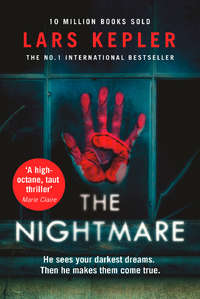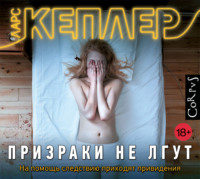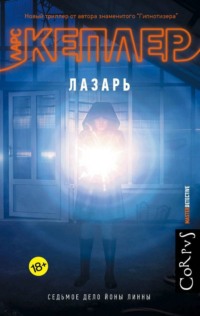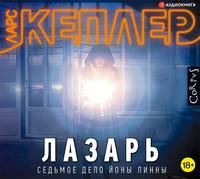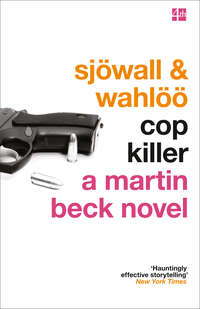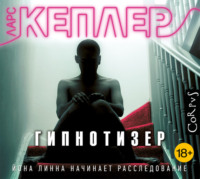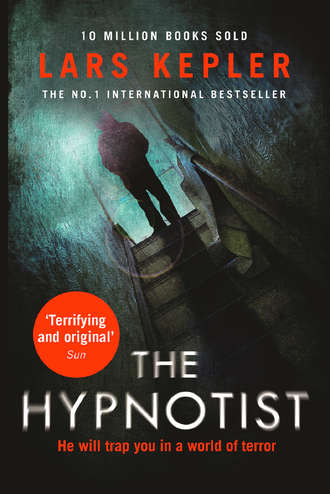
Полная версия
The Hypnotist
“Have you called?”
“It’ll be ready in fifteen minutes,” she says, giving him her purse. “You know where the Thai place is, don’t you?”
“Mum!” He sighs.
“Go straight there and back,” she says.
“Oh, please.”
“Listen to your mother,” says Erik.
“I’m just going to the corner to pick up a take-away; nothing’s going to happen,” he says, going into the hallway.
Simone and Erik smile at each other as they hear the front door close and their son’s rapid footsteps on the stairs.
Erik gets three glasses out of the cupboard, stops, takes Simone’s hand, and holds it against his cheek.
“Bedroom?” she asks.
He looks embarrassingly pleased, just as the telephone rings. “Leave it,” he says.
“It could be Benjamin,” she says, picking up the phone. “Hello?” She hears nothing, just a faint ticking sound, perhaps from a zipper being undone. “Hello?” She puts the telephone down.
“Nobody there?” asks Erik, uneasily.
Simone watches as he goes over to the window and looks down at the street. Once again she hears the voice of the woman who answered her earlier call. Stop it, Erik. She had laughed. Stop what? Fumbling inside her clothes, sucking at her nipple, pushing up her skirt?
“Call Benjamin,” says Erik, his voice strained.
“Why do I need to—” She picks up the phone just as it rings again. “Hello?”
When no one speaks she cuts the connection and dials Benjamin’s number.
“Voicemail.”
“I can’t see him,” says Erik.
“Should I go after him?”
“Maybe.”
“He’ll be furious with me,” she says with a smile.
“I’ll go,” says Erik, moving into the hallway.
He is just taking his jacket off the hanger when the door opens and Benjamin walks in with a plastic bag stacked with cartons of steaming food.
They sit down in front of the TV to watch a movie, eating straight out of the containers. Benjamin laughs at the snappy dialogue, and Erik and Simone glance happily at each other as they did when he was a child, laughing out loud at some children’s programme. Erik puts his hand on Simone’s knee, and she puts her hand on top of his, squeezing it.
Bruce Willis is on his back, wiping blood from his mouth. The telephone rings again and Erik puts down his food and gets up. He goes out into the hallway and answers as calmly as he can.
“Erik Maria Bark.” There is no sound, just a faint clicking. “Right, that’s enough,” he says angrily.
“Erik?” It’s Daniella’s voice. “Is that you, Erik?” she asks.
“We’re just in the middle of eating.” He can hear her rapid breathing.
“What did he want?” she asks.
“Who?”
“Josef,” she replies.
“Josef Ek?”
“Didn’t he say anything?” asks Daniella.
“When?”
“Just now … on the phone.”
Erik can see Simone and Benjamin watching the film in the living room. He thinks about the family out in Tumba. The little girl, the mother and father. The horrendous rage behind the crime.
“What makes you think he called me?” asks Erik.
Daniella clears her throat. “He must have talked the nurse into bringing him a phone. I’ve spoken to the exchange; they put him through to you.”
“Are you sure about this?”
“Josef was screaming when I went in; he’d ripped out the catheter. I gave him alprazolam, but he said a lot of things about you before he fell asleep.”
“Like what? What did he say?”
Erik hears Daniella swallow hard, and her voice sounds very tired when she replies.
“That you’d been fucking with his head and you should leave his fucking sister alone if you don’t want to be eliminated. He said it several times. You can expect to be eliminated.”
24
tuesday, december 8: evening
It has been three hours since Joona took Evelyn to the Kronoberg custody centre. She was placed in a small cell with bare walls and horizontal bars over the steamed-up window. A stainless steel sink reeked of vomit. Evelyn stood next to the bunk with its green plastic mattress and stared at Joona inquiringly as he left her there.
Once a suspect has been brought in, the prosecutor has up to twelve hours to decide whether the person should be arrested or released. If he decides not to release, he then has until twelve o’clock on the third day to submit an application to the court asking for the suspect to be arrested. If he fails to do this, the person is free to go. The basis for requesting an arrest can be either probable grounds for suspicion or, more seriously, reasonable grounds for suspicion.
Now Joona is back. Striding toward the women’s unit along the corridor with its shiny white vinyl floor, past monotonous rows of pea-green cell doors, he catches his own reflection in door handles and locks.
Jens Svanehjälm, Chief Prosecutor for the Stockholm district, waits for him outside one of the five interview rooms. Although Svanehjälm is forty years old, he looks no more than twenty, his boyish expression and round, smooth cheeks lending a false impression of innocence and naïveté.
“So,” he says, “did Evelyn force her younger brother to murder their family?”
“According to Josef.”
“Nothing Josef Ek says under hypnosis is admissible. It goes against his right to remain silent and his right to avoid incriminating himself.”
“I realise that,” says Joona. “It wasn’t an interrogation. He wasn’t a suspect. I thought the boy had information that would prevent another murder from taking place.”
Jens says nothing. He scrolls through e-mails on his phone.
“I’ll know soon enough what actually happened,” says Joona.
Jens looks back up, with a smile. “I’m sure you will,” he says. “Because when I took over this job, my predecessor told me that if Joona Linna says he’s going to find out the truth, that’s exactly what he’ll do.”
“We had one or two disagreements.”
“Yes, she said that, too,” says Jens.
Joona nods. Motioning towards one of the interview rooms, he asks, “Ready?”
“We’re questioning Evelyn Ek purely in pursuit of information,” Jens stresses.
“Do you want me to tell her that she’s suspected of a crime?”
“That’s up to you; you’re the lead interrogator. But the clock’s ticking. You haven’t got a lot of time.”
Joona knocks twice before entering the dreary interview room, where the blinds are pulled down over the barred windows. Evelyn Ek sits, her eyes downcast. Her arms are folded across her chest; her shoulders are tense and hunched, her jaw clenched.
“Hi, Evelyn.”
She looks up quickly, her soft brown eyes frightened. He sits down opposite her. Like her brother, she is attractive; her features are not striking, but they are symmetrical. She has light brown hair and an intelligent expression. Joona realises she has a face that at first glance might appear plain but that becomes more and more beautiful the longer you look at it.
“I thought we should have a little talk,” he says. “What do you think?”
She shrugs her shoulders.
“When did you last see Josef?”
“Don’t remember.”
“Was it yesterday?”
“No,” she says, sounding surprised.
“How many days ago was it?”
“What?”
“I asked when you last saw Josef,” says Joona.
“Oh, a long time ago.”
“Has he been to see you at the cottage?”
“No.”
“Never? He’s never been to see you out there?”
A slight shrug. “No.”
“But he knows the place, doesn’t he?”
She nods. “We went there when he was a little kid,” she replies.
“When was that?”
“I don’t know … I was fifteen. We borrowed the cottage from Auntie Sonja one summer when she was in Greece.”
“And Josef hasn’t been there since?”
Evelyn’s gaze suddenly flickers across the wall behind Joona. “I don’t think so,” she says.
“How long have you been staying there?”
“I moved there just after term started.”
“In August.”
“Yes.”
“You’ve been living in a little cottage in Värmdö for four months. Why?”
Once again her gaze flutters away, moving behind Joona’s head. “So I could have peace and quiet to study,” she says.
“For four months?”
She shifts in the chair, crossing her legs and scratching her forehead. “I need to be left in peace,” she says with a sigh.
“Has somebody been bothering you?”
“No.”
“When you say that you want to be left in peace, it sounds as if someone’s been bothering you.”
She gives a faint, joyless smile. “I just like the forest.”
“What are you studying?”
“Political science.”
“And you’re supporting yourself on a student loan?”
“Yes.”
“Where do you buy food?”
“I bike to Saltarö.”
“Isn’t that a long way?”
Evelyn shrugs her shoulders. “I suppose so.”
“Have you seen anyone you know there?”
“No.”
He contemplates Evelyn’s smooth young forehead. “You haven’t seen Josef there?”
“No.”
“Evelyn, listen to me,” says Joona, in a new, more serious tone. “Your brother told us that he was the one who murdered your father, your mother, and your little sister.”
Evelyn stares at the table. Her eyelids tremble; a faint flush rises on her pale face.
“He’s only fifteen years old,” Joona goes on.
He looks at her thin hands and the shining, brushed hair lying over her frail shoulders.
“Why do you think he’s saying he murdered his family?”
“What?” she asks, looking up.
“It seems as if you think he’s telling the truth,” he says.
“It does?”
“You didn’t look surprised when I said he’d confessed,” says Joona. “Were you surprised?”
“Yes.”
She sits motionless on the chair. A thin furrow of anxiety has appeared between her eyebrows. She looks very tired, and her lips are moving slightly, as if she is praying or whispering to herself. “Is he locked up?” she asks suddenly.
“Who?”
She doesn’t look up at him when she replies but speaks tonelessly down at the table. “Josef. Have you locked him up?”
“Are you afraid of him?”
“No.”
“I thought perhaps you were carrying the gun because you were afraid of him.”
“I hunt,” she replies, meeting his gaze.
There’s something peculiar about her, something he doesn’t yet understand. It’s not the usual things: guilt, rage, or hatred. It’s more like something reminiscent of an enormous resistance. He can’t get a fix on it. A defence mechanism or a protective barrier unlike anything he has yet encountered.
“Hare?” he asks.
“Yes.”
“Is it good, hare?”
“Not particularly.”
“What does it taste like?”
“Sweet.”
Joona thinks about her standing in the cold air outside the cottage. He tries to visualise the chain of events.
Erik Maria Bark had taken her gun. He was holding it over his arm and it was broken open, the brass of the cartridges visible. Evelyn was squinting at him in the sunlight. Tall and slim, with her sandy brown hair in a high, tight ponytail. A silvery padded vest and low-cut jeans, damp running shoes. Pine trees behind her, moss on the ground, low-growing lingonberry and trampled toadstools.
Suddenly Joona discovers a crack in Evelyn’s story. He has already nudged at the thought, but it slipped away. Now the crack is absolutely clear. When he spoke to Evelyn in her aunt’s cottage, she sat completely still on the corduroy couch with her hands clamped between her thighs. On the floor at her feet lay a photograph in a frame that looked like a toadstool. Evelyn’s little sister was in the picture, sitting between her parents with the sun glinting off her big glasses.
The little girl must have been four, perhaps even five years old in the picture. In other words, the photograph can be no more than a year or two old. Evelyn claimed that Josef hadn’t been to the cottage for years, but he accurately described the photo and the frame under hypnosis.
Of course, there could be several copies of the picture in other toadstool frames, thinks Joona. There’s also the possibility that this particular one has been moved around. And Josef could have been in the cottage without Evelyn’s knowledge.
But it could also be a crack in Evelyn’s story.
“Evelyn,” says Joona, “I’m just wondering about something you said a little while ago.”
Jens Svanehjälm gets to his feet. The sudden movement startles Evelyn, and her body jerks. “Would you come with me for a minute, detective?” Outside, he turns to Joona. “I’m letting her go,” he says, in a low voice. “This is bullshit. We don’t have a thing, just an invalid interrogation with her comatose fifteen-year-old brother, who suggests that she—”
Jens stops speaking as soon as he sees the look on Joona’s face.
“You’ve found something, haven’t you?” he says.
“I think so, yes,” Joona replies quietly.
“Is she lying?”
“I don’t know. She might be.”
Jens runs his hand over his chin, considering. “Give her a sandwich and a cup of tea,” he says eventually. “Then you can have one more hour before I decide whether we’re going to arrest her or not.”
“There’s no guarantee this will lead to anything.”
“But you’ll give it a go?”
Four minutes later, Joona places a Styrofoam cup of English breakfast tea and a sandwich on a paper plate in front of Evelyn and sits down on his chair. “I thought you might be hungry,” he says.
“Thanks,” she says, and a more cheerful expression momentarily sweeps across her features. Joona watches her carefully. Her hand shakes as she eats the sandwich and lifts the cup from the table to her lips.
“Evelyn, in your aunt’s cottage there’s a photograph in a frame that looks like a toadstool.”
Evelyn nods. “Aunt Sonja bought it up in Mora; she thought it would look nice in the cottage …” She stops and blows on her tea.
“Did she buy any more like that? For gifts, say?”
“Not that I know of.” She smiles. “I’ve never seen another like it.”
“And has the photograph always been in the cottage?”
“What do you mean?” she asks faintly.
“Well, I’m not sure. Maybe nothing. But Josef talked about this picture, so he must have seen it sometime. I thought perhaps you’d forgotten something.”
“No.”
“Well, that clears that up,” says Joona, getting up.
“Are you going?”
“Yes, I think we’re done here,” says Joona. He looks at her face, filled with anxiety, and acts on a hunch.
“Chances are you’ll be out of here—oh, in an hour or two.”
“Out of here?”
“Well, I don’t think we can hold you for anything.” He smiles.
She wraps her arms around herself. “You never answered my question.”
“Question?”
“Is Josef locked up?”
Joona looks her square in the eye. “No, Evelyn. Josef is in the hospital. We haven’t arrested him. I don’t know that we can.”
She begins to tremble, and her eyes fill with tears.
“What is it, Evelyn?”
She wipes the tears from her cheeks with the heel of her hand. “Josef did come to the cottage once. He took a taxi and he brought a cake,” she says, her voice breaking.
“On your birthday?”
“He … it was his birthday.”
“When was that?”
“On 1st November.”
“Just over a month ago,” says Joona. “What happened?”
“Nothing,” she says. “It was a surprise.”
“He hadn’t told you he was coming?”
“We weren’t in touch.”
“Why not?”
“I need to be on my own.”
“Who knew you were staying there?”
“Nobody, apart from Sorab, my boyfriend … well, actually, he broke up with me, and we’re just friends, but he helps me, tells everybody I’m staying with him, answers when Mum calls.”
“Why?”
“I need to be left in peace.”
“So you’ve said. Did Josef go out there again?”
“No.”
“This is important, Evelyn.”
“He didn’t come again,” she replies.
“You’re certain?”
“Yes.”
“Why did you lie about this?”
“I don’t know,” she whispers.
“What else have you lied about?”
25
wednesday, december 9: afternoon
Erik is walking between the brightly lit display cases in the NK department store’s jewellery department. A sleek saleswoman dressed in black murmurs persuasively to a customer. She slides open a drawer and places a few pieces on a velvet-covered tray. Erik pauses to study a Georg Jensen necklace: heavy, softly polished triangles, linked together like petals to form a closed circle. The sterling silver has the rich lustre of platinum. Erik thinks how beautifully it would lie around Simone’s slender neck and decides to buy it for her for Christmas.
As the assistant is wrapping his purchase in dark-red shiny paper, the cell phone in Erik’s pocket begins to vibrate, resonating against the little wooden box with the parrot and the native. He answers without checking the number on the display.
“Erik Maria Bark.”
There’s a strange crackling noise, and he can hear the distant sound of Christmas carols. “Hello?” he says.
A very faint voice can be heard. “Is that Erik?”
“Yes,” he replies.
“I was wondering …”
Suddenly Erik thinks it sounds as if someone is giggling in the background. “Who is this?” he asks sharply.
“Hang on, doctor. I need your expert advice,” says the voice, dripping with contempt. Erik is about to end the call when the voice on the phone suddenly bellows, “Hypnotise me! I want to be—”
Erik snatches the phone away from his ear. He presses the button to end the conversation and tries to see who called, but it’s a withheld number. A beep tells him he has received a text message, also from a withheld number. He opens it and reads: CAN YOU HYPNOTISE A CORPSE?
Bewildered, Erik takes his purchase in its red and gold bag and leaves the jewellery department. In the lobby he catches the eye of a woman in a bulky, black coat. She is standing underneath a suspended Christmas tree, three storeys high, and she is staring at him with a hostile expression. He has never seen her before.
With one hand he flips open the lid of the wooden box in his coat pocket, tips a codeine capsule into his hand, puts it in his mouth, and swallows it.
He goes outside into the cold air. People are crowded before a shop window where Christmas elves are dancing around in a landscape made of sweets. A toffee with a big mouth sings a Christmas song. Nursery school children dressed in yellow vests over thick snowsuits gaze in open-mouthed silence at the scene.
The mobile phone rings again, but this time he checks the number before answering. It’s a Stockholm number.
“Erik Maria Bark,” he says cautiously.
“Hi, there. My name is Britt Sundström. I work for Amnesty International.”
“Hi,” Erik says, puzzled.
“I’d like to know whether your patient had the opportunity to say no to the hypnosis.”
“What did you say?” asks Erik, as a huge snail drags a sledge full of Christmas presents across the window display. His heart begins to pound, and a burning acidity surges up through his gut.
“The CIA handbook for torture that leaves no trace does actually mention hypnosis as one of the—”
“The doctor responsible for the patient made the judgment.”
“So you’re saying you bear no responsibility?”
“I have no comment,” he says.
“You’ve already been reported to the police,” she says curtly.
“I see,” he says feebly, and ends the call.
He begins to walk slowly toward Sergels Torg, with its shining glass tower and Culture House, sees the Christmas market, and hears a trumpeter playing ‘Silent Night.’ He turns onto Sveavägen. Outside the 7-Eleven he stops and reads the display boards showing the headlines from the evening papers:
‘I KILLED MUM AND DAD’
Hypnotist Dupes Boy into Confession
IN YOUR HEAD
Doctor Risks Boy’s Life to Coerce Admission
BARK WORSE THAN BITE
New Hypnosis Scandal for Tarnished Doc
OUTRAGE!
Stumped Cops Enlist Hypnodoc, Scapegoat Victim
Erik can feel his pulse begin to pound in his temples and hurries on, avoiding looking directly at those around him. He passes the spot where Prime Minister Olof Palme was assassinated back in 1986, walking home with his wife from the movies. Three red roses are lying on the grubby memorial plaque. Erik hears someone calling after him and slips into an exclusive electronics shop. Although only a few minutes ago he’d been so tired he felt almost drunk, that feeling has been replaced by a feverish mixture of nervousness and despair. His hands shake as he takes yet another strong painkiller. He feels a stabbing pain in his stomach as the capsule dissolves and the powder goes into the mucous membranes.
The radio in the shop is broadcasting a debate about the extent to which hypnosis should be banned as a form of treatment. A caller is telling the story of how he was once hypnotised into thinking he was Bob Dylan.
“I mean, like, I knew it wasn’t true,” he drawls, “but it was like I was kind of forced to say what I said, you know? I knew I was, like, being hypnotised. I could see my buddy was, like, sitting right there, like, waiting for me? But I still thought, like, I’m Dylan! I was even speaking English. Like, I couldn’t help it; I would’ve admitted to just about anything.”
The Minister for Justice says in his Småland accent, “There is absolutely no doubt that using hypnosis as a method of interrogation is a violation of the rights of the individual.”
“So Erik Maria Bark has broken the law?” the journalist asks sharply.
“We expect the Prosecutor’s Office to conduct a thorough investigation of the legality of his actions.”
26
wednesday, december 9: afternoon
By the time Erik reaches Luntmakargatan 73, sweat is pouring down his back. He punches in the code to open the door. With fumbling hands he finds his keys as the lift hums its way upwards. Once inside the apartment, he staggers into the living room and tries to take off his coat, but the pills have made him dizzy. He topples onto the sofa and switches on the television.
There is the Chairman of the Swedish Society for Clinical Hypnosis sitting in a TV studio. Erik knows him very well; he has seen many colleagues affected by his arrogance and his ruthless ambition.
“We expelled Bark ten years ago and we won’t be welcoming him back,” the chairman says, with a tight smile.
“Does an incident like this affect the reputation of serious hypnosis?”
“All our members adhere to strict ethical rules,” he says superciliously. “Moreover, Sweden has laws against charlatans.”
Erik finally takes his outdoor clothes off with clumsy movements, piling them on the sofa beside him. He closes his eyes for a moment to rest but opens them immediately when he hears a familiar voice coming from the television. Benjamin is standing in a sunlit school playground. His brow is furrowed, the tip of his nose and his ears are red, his shoulders are hunched, and he looks very cold.
“So,” asks the reporter. “What’s it like living with the hypnodoc?”
“I don’t know,” says Benjamin.
“Has your dad ever hypnotised you?”
“What? No way.”
“How do you know?” the reporter persists. “If he had hypnotised you, there’s no guarantee that you’d be aware of it, is there?”
“I guess not,” replies Benjamin with a grin, surprised by the reporter’s pushy approach.


